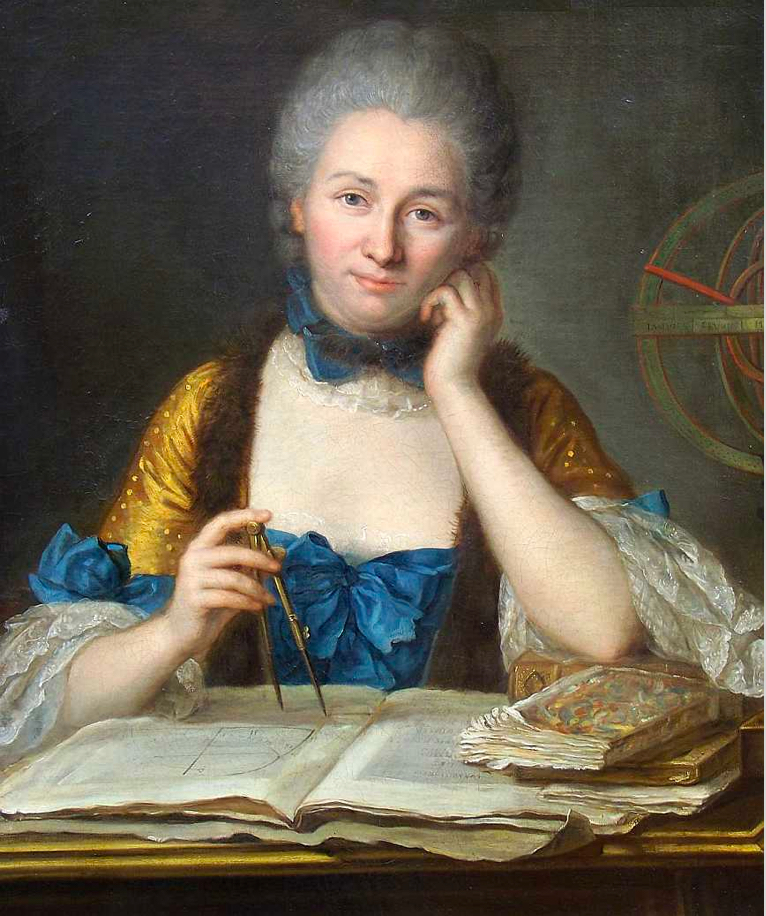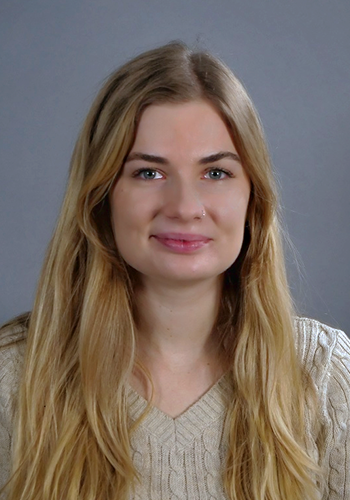
Why a career in tech?
During my engineering studies, I became increasingly aware of societal challenges and decided to pursue a career focused on addressing them. Technological fields are powerful tools for tackling these issues and creating a real impact on the world. Additionally, technology is constantly evolving, offering a dynamic environment for continuous learning. With my natural curiosity and my drive to always understand more, I feel perfectly suited to this ever-changing field. Today, working in additive manufacturing, I am passionate about this technology, which is transforming production methods, solving current challenges, and adapting to a wide range of industries.
Your professional experience?
I moved to France in 2016 to pursue my studies at the University of Technology of Compiègne (UTC). I initially studied mechanical engineering and then pursued the Materials and Technological Innovations program, where I discovered materials science. I was immediately fascinated by this field due to the wide range of applications across various sectors. Eager to contribute to low-carbon energy technologies, I completed my final-year internship at CEA, focusing on optimizing process parameters for an additive manufacturing technology (powder deposition). This experience in the research world motivated me to continue at CEA, where I completed a PhD in additive manufacturing, in collaboration with the University of Clermont Auvergne.
Your first experience with technology?
My first professional experience after my internships was my PhD, a training experience both for research and through research. My thesis focused on integrating phosphors into metallic components using additive manufacturing, aiming to create a luminescent marking layer that could indicate corrosion levels and alert the operator to material degradation. This innovative topic had never been explored before, presenting both a challenge and an opportunity to innovate and demonstrate proof of concept. A PhD is a unique opportunity to fully immerse yourself in a subject, deepen your knowledge, and become an expert in a field while showcasing your results.
What do you do today, and why?
After my PhD, I pursued my career at CEA as a research engineer in additive manufacturing. I continue and expand on the theme of my thesis, exploring new applications and supervising others on the topic. My work also involves managing and overseeing projects focused on the development of new alloys and evaluating their performance under extreme conditions. Among the innovative areas being explored by our lab, we are working on the instrumentation of metallic components through the integration of fiber optic sensors, paving the way for the development of connected materials. In this context, I supervise internship and thesis projects. The role of a research engineer combines experimental work, project management, and team leadership, offering a comprehensive approach to research, from development to application. It is this diversity that led me to choose this career path.
Your strengths in this role?
At the intersection of engineering and research, my expertise in additive manufacturing allows me to contribute both to the development of technologies and to the evolution of materials and innovations that result from them. This ever-evolving field requires great curiosity and continuous technological monitoring. Learning is constant, demanding a strong ability to adapt. Additionally, creativity is essential for innovation and for proposing new solutions.
Past challenges, failures and disappointments?
One of my first challenges was the engineering school, where I had to master the language while progressing in technical and scientific areas. Being far from my family and friends was tough at first, leading to some moments of loneliness. Fortunately, I was lucky to receive support from both students and teachers, which helped me quickly adjust to the pace. In my daily life as a researcher, failed experiments are common. During my PhD in particular, such setbacks can make you question your skills and the value of your work. It is not uncommon to doubt your legitimacy as a researcher, and these periods of self-doubt can sometimes lead to moments of isolation.
Best moments, successes you’re proud of?
Although moments of solitude and unproductive results may occur, achieving meaningful outcomes is a motivating step that drives me to push even further. Some of the best moments in my work are when I can showcase my research, particularly through patent filings, publishing scientific articles, and participating in international conferences. Meeting peers from around the world and exchanging ideas on science is an enriching experience that broadens perspectives. Alongside my research activities, I dedicate time to visiting schools to raise awareness about science and encourage young girls to pursue careers in technology. These moments of sharing and inspiration have been especially impactful, and seeing young talents choose to do their internships in scientific fields is a true victory. Another proud moment was receiving the first Fem’Energia Award 2024 in the “BAC+5 et plus” category, a recognition that further validated my work and career.
People who helped, influenced -or made your life difficult?
From a young age, I have been fortunate to be surrounded by teachers who encouraged and pushed me to move forward. One particularly influential teacher was my physics instructor in high school, who made me fall in love with a subject I initially did not enjoy, wrongly convinced that it was not for me. Thanks to him, I discovered a new way of approaching physics, which eventually led me to pursue a mechanical engineering program. My passion for materials truly blossomed during my time at UTC, where the professors in the Materials and Technological Innovations track introduced me to this fascinating field. I am deeply grateful for their guidance and inspiration, and it has been a pleasure to continue crossing paths with them throughout my career. During my PhD, I was also fortunate to have mentors who helped me develop professionally, both in terms of my work and how to showcase my results. I am incredibly thankful to them, as they believed in me from the very beginning, even during moments when I still had doubts. Ultimately, the most inspiring figure for me has been my father. He faced many challenges to pursue what he loves, but he always believed in his abilities and dared to move forward. One challenging aspect of my journey, which I realized over time, is the impact of certain remarks that, although seemingly harmless at the time, could have influenced my career choices in a significant way. That is why I am committed to showing that science and technology are accessible to everyone.
Your hopes and future challenges?
As a young researcher, I aim to build a successful career by exploring innovative topics in materials and additive manufacturing. One of the major challenges in my field is balancing different topics, as these often require a wide range of skills in metallurgy, processes, thermodynamics, optics, and many other areas. Another challenge is transitioning into the role of supervising PhD projects, a demanding but also very rewarding role. In the long term, I would also like to have the opportunity to teach scientific subjects related to my area of research at the university level.
What do you do when you don’t work?
Passionate about science communication and committed to promoting the role of women in science, I have been involved in various initiatives to support these causes since my engineering studies. Today, I am a member of the Professional Equality network at CEA, whose goal is to introduce young people to scientific careers and encourage girls to pursue these fields. Our activities include interactive workshops where students conduct experiments, allowing them to explore scientific phenomena while connecting them to our professions. I am also involved with WiN France (Women in Nuclear), which further strengthens my commitment to raising awareness among young people about technical careers. Outside of science, I have a long-standing passion for dance, which I have practiced since childhood. I find parallels between dance and science, particularly in the freedom of expression and creativity it offers.
Your heroes -from History or fiction?
When I was younger, I admired the character of Hermione Granger. Her intelligence and strong personality impressed me, and I believe she has been an inspiration for many girls. Today, my admiration is directed towards women who are committed to various causes, as well as everyday role models and inspiring professional journeys.
A saying or proverb you like in particular?
“Limits, like fears, are often just an illusion”. This quote by Michael Jordan guides me every day, encouraging me to take risks and not set barriers for myself. It reminds me that it is essential to believe in my abilities and always move forward.
A book to take with you on a desert island?
Perhaps Atomic Habits by James Clear, to work on becoming the best version of myself, especially with all the free time I would have on a deserted island! Otherwise, a Harry Potter book, a reliable and comforting choice.
A message to young female professionals?
Believe in your potential, be bold, and do not be afraid to seize the opportunities that will help you grow. Technological careers offer a true space for fulfillment, allowing you to personalize your path, learn every day, collaborate in teams, and share your knowledge. I highly recommend these careers, as they are full of opportunities and exciting challenges.

